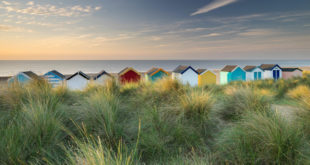Camping in Britain is one of the most popular ways of spending your holidays. Especially in the summer month which is few months, given British weather, camping and touring caravans are part of the culture there. The official three months spanning from June to September is the summertime when you can enjoy yourself and relax with your family especially children. Although, British weather could be as fickle as a mad scientist believe it or not these three months are practically that time of the year when you can enjoy the warm glow of the sun with long days and short nights, yes, even in Scotland.
 Camping in the summer in Britain can be real fun with all the festivals and parades all over the United Kingdom. With the right kind of camping gear, motor home insurance, and knowledge you can enjoy a camping holiday at a low cost with your family, loved ones, and friends. However, before you get started here is a quick guide to what British camping may have in store for you. The guide will help you to plan a comfortable and enjoyable trip.
Camping in the summer in Britain can be real fun with all the festivals and parades all over the United Kingdom. With the right kind of camping gear, motor home insurance, and knowledge you can enjoy a camping holiday at a low cost with your family, loved ones, and friends. However, before you get started here is a quick guide to what British camping may have in store for you. The guide will help you to plan a comfortable and enjoyable trip.1. Types of Camping:
Essentially there are four types of camping culture in Britain. Though all of these share a range of common essential features they also have very distinct personalities too. Campsite camping is the most popular one where campers pay for a pitch for a period which ensures you to check the rule books of the specific site. Festival camping although varies in shapes and sizes have one common feature of providing gear from a car park to your site. Wild camping as the name suggests is going out in the wild with whatever you can comfortably carry. However, it is only legal in Scotland and certain areas in Dartmoor National Park. Glamping is a more glamorous version of camping where you take all your mod cons and enjoy the more luxurious aspect of camping.
 2. Cooking outdoors:
2. Cooking outdoors:Whether you want to indulge in BBQs or want to cook up a family fest, cooking outdoors is the most exciting part of any camping activities. If you are interested in such activities you need to make sure you use your cooking instruments properly with all safety precautions. Make sure you know what the right kind of gas is and where to cook as British law can be stringent on such precautions. Remember fire has a significant risk element to it thus check out the bits of advice on the Royal Society for the Preservation of Accidents to reduce risks.
 3. Packing tips for camping trips:
3. Packing tips for camping trips:While packing you must make sure that you pack only the essentials, including at least a torchlight, first aid kit, sun cream, warm sleeping bags, and enough bedding. Even in summer as the days can be really hot, the nights can get equally chilly and even damp and wet. If you want to go wild camping in Scotland check out the Scottish Outdoor Access Code for a better idea on what you are allowed to do and what you aren’t. At all times make sure you have enough litter bags with you to pick and clean up your pitch while you are there and even when you are leaving. Littering in Britain can cost you an arm and a leg if caught by the county council officials.
 4. Keeping warm and dry:
4. Keeping warm and dry:As mentioned earlier British weather can be the cause of paramount stress and confusion especially to campers. Whether you are hitchhiking or taking a cross country road trip in your motor home, make sure you pack efficiently. Do not forget a pair of good waterproof and watertight boots, waterproof tents, spare thermals, and a rain and windproof jacket. Check the local weather before heading out at all costs. Also store all your food items in a dry bag.
 Remember choosing a campsite is entirely the reflection of your personality – your likes and dislikes. However, if possible stay away from overused and obvious sites as they might hinder your enjoyment. So go ahead and enjoy the country’s parks, estates, quaint country houses, lakes, and most importantly its amazing wildlife with your friends, family and dear ones.
Remember choosing a campsite is entirely the reflection of your personality – your likes and dislikes. However, if possible stay away from overused and obvious sites as they might hinder your enjoyment. So go ahead and enjoy the country’s parks, estates, quaint country houses, lakes, and most importantly its amazing wildlife with your friends, family and dear ones. Tourist Destinations World Travel Guides
Tourist Destinations World Travel Guides


